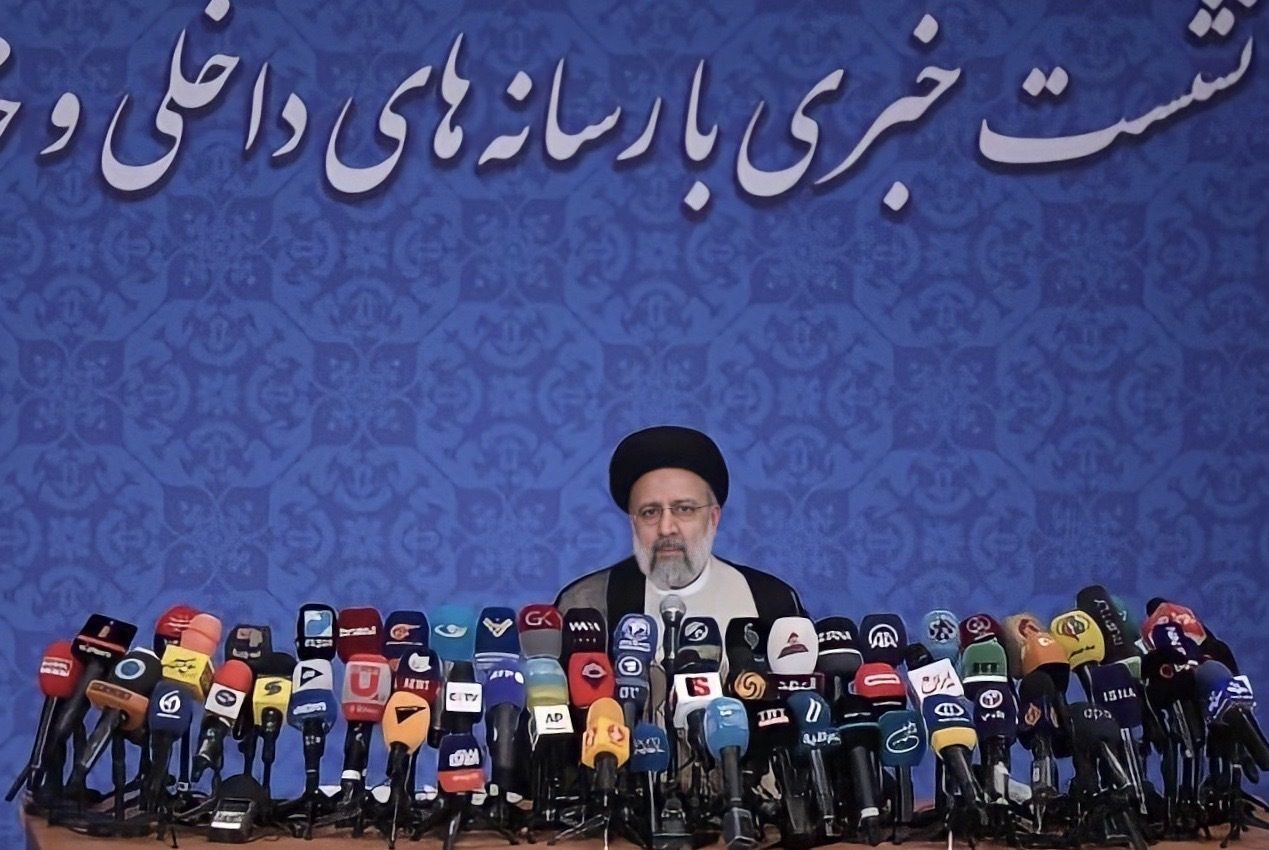The Iranian foreign ministry spokesman said the next round of nuclear talks in Vienna could be the last.
Iranian president-elect Ebrahim Raisi expressed his support to the ongoing Vienna talks during a press conference on Monday, his first since the Iranian presidential elections took place over the weekend.
“We support the negotiations that guarantee our national interests. … America should immediately return to the deal and fulfil its obligations under the deal,” said Raisi, who is also under US sanctions.
However, Raisi dismissed possibilities to meet US President Joe Biden if the sanctions are lifted, noting that Iran’s foreign policy is not limited to the Joint Comprehensive Plan of Action [JCPOA].
He added that Iran’s “regional activities and ballistic missile programme” were non-negotiable.
Responding to the newly-elected president’s comments, the White House said that no meeting was planned and that Supreme Leader Ayatollah Ali Khamenei is the decision maker in Iran.
“We don’t currently have diplomatic relations with Iran or any plans to meet with at the leader level, so it’s unclear that anything has actually changed on that front,” White House press secretary Jen Psaki told reporters on Monday.
“I will say that the president’s view and our view is that the decision maker here is the Supreme Leader. That was the case before the election; is the case today; will be the case, probably, moving forward,” added Psaki.
The American diplomat also said that nuclear negotiators at the Vienna talks have yet announce a seventh round.
‘Clarity on technical issues’ reported at Vienna talks following Iran elections
However, Iranian Foreign Ministry spokesman Saeed Khatibzadeh told reporters on Monday that the next round of talks in Vienna could be the last, revealing that sides have reached “a clear text” about all issues and what remains needs “political decision” from all sides”.
“If the necessary decisions are taken, we can hope that the next round of negotiations will be final,” said Khatibzadeh.
When asked about the postponement of a JCPOA agreement until the next government comes into office, Khatibzadeh said that the reports and speculations are far from reality as Iran does not intend on prolonging the lifting of sanctions.
Negotiators at the Vienna talks met on Sunday during the sixth round of negotiations and said that more progress “on a number of technical issues” has been made.
“We have now more clarity on technical documents — all of them quite complex — and that clarity allows us to have also a great idea of what the political problems are,” Enrique Mora, the EU official who chaired the final meeting of the sixth round of talks, told reporters.
Read also: Qatar congratulates newly-elected President Raisi as world powers edge towards new Iran deal
Mora added that negotiators are closer to a deal and it is now up to the governments involved in the talks to make decisions.
“The JC [Joint Commission] of JCPOA met today, took stock of the significant progress made at the #ViennaTalks, including at the sixth round, and decided to make a break to allow participants to consult with their capitals in preparation for what is supposed to be the final round of negotiations,” tweeted Mikhail Ulyanov, Russia’s representative at the talks.
According to the AP, Ulyanov also said that negotiations might be finalised by mid-July.
Election of Raisi
Sixty-year-old cleric Raisi was elected as Iran’s next president and is due to take office after current President Hassan Rouhani.
Raisi’s victory raised questions regarding the fate of the ongoing Vienna talks, which aim to revive the 2015 nuclear accord following a US withdrawal from the deal by former Donald Trump Administration in 2018.
Trump imposed sanctions that took a major toll on Iran’s economy.
But despite previously opposing the nuclear deal, Raisi has expressed his support towards negotiations throughout elections debates, promising to create a strong government that would effectively lead to an implementation of the JCPOA.
Raisi is also the first Iranian president to be sanctioned by the US even before assuming presidency for his alleged involvement in the 1988 mass executions.
“The new president will, of course, be held accountable for violations of human rights on his watch going forward,” said Psaki when asked about the sanctions on Raisi.
“We strongly urge the Iranian government, regardless of who’s in power, to release political prisoners, improve respect for human rights and fundamental freedoms for all Iranians,” Psaki added.
Follow Doha News on Twitter, Instagram, Facebook and Youtube







